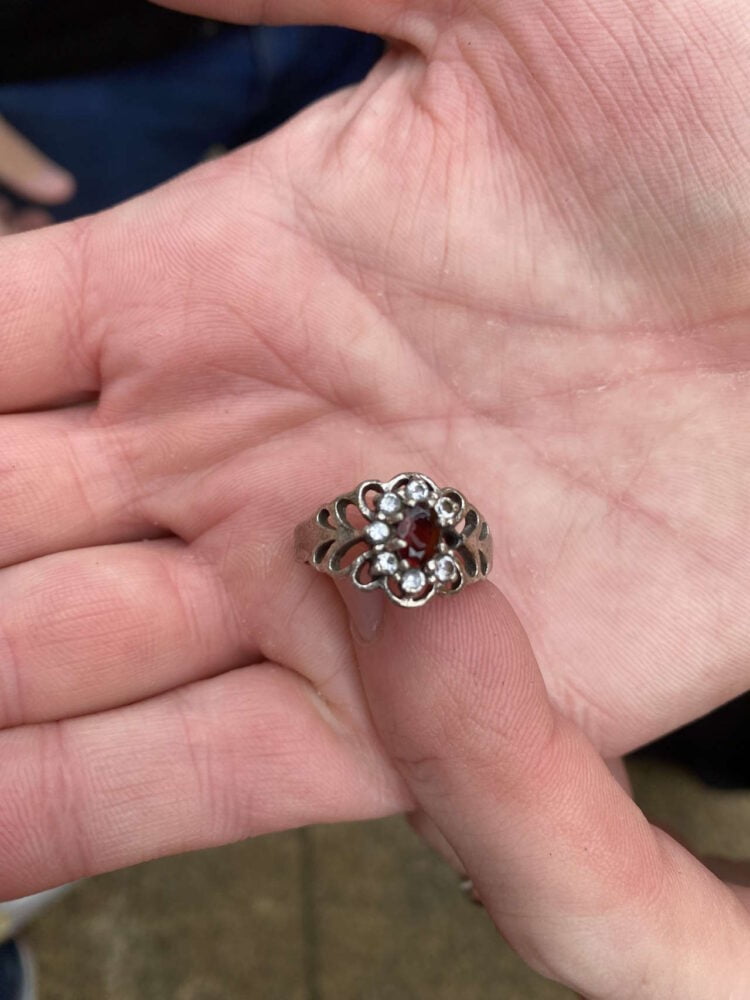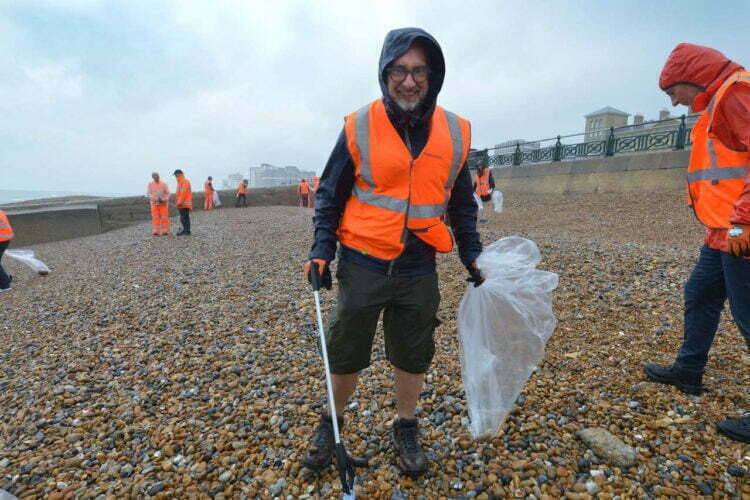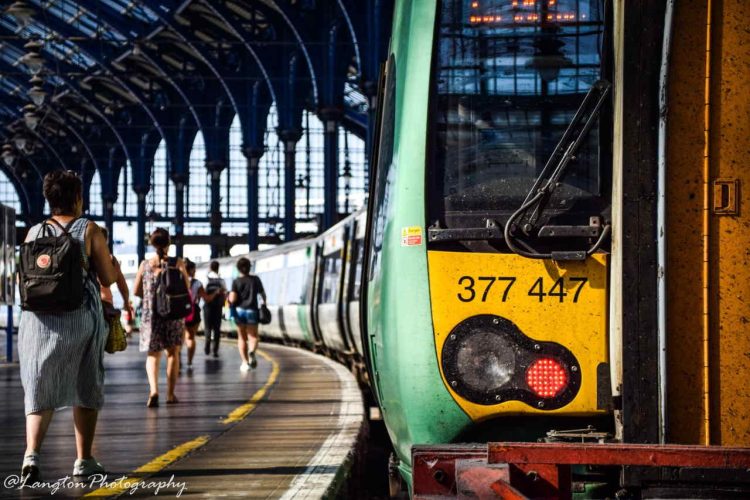On Monday, railway workers helped to clean up a section of Brighton and Hove beach as part of the Marine Conservation Society’s Great British Beach Clean.
The charity runs its beach clean and litter survey project every year, and this year, it continues until Sunday 24 September.
Brighton & Hove Albion Football Club and Brighton & Hove Buses also helped with the effort, which took place at low tide. The team of thirty-five volunteers worked in conditions of torrential rain and strong winds, and collected an impressive 589 items of litter from a hundred-metre stretch of beach. Their haul included crisp packets, bottle tops and cigarette butts.
They also found a ring which the railway staff – from Southern and Thameslink – hope to reunite with its owner. Jason Brooker, Head of Environment at Govia Thameslink Railway (GTR) which runs the two train firms, said of the ring, “It may not have much intrinsic value but it could be very special to someone and we’d really love to get it back to the owner.”

Each piece of litter picked up was catalogued, and will not enter the ocean and damage marine wildlife. This gives the Marine Conservation Society a very useful insight into what is polluting the sea, which informs its campaign for measures to protect the ocean.
The society’s demands have included:
- plastic bag charges
- better wet wipe labelling
- a tax on single-use plastic items.
GTR points out that electric trains are the most sustainable form of public transport, and hopes that with the worsening climate and ecological crisis, the beach clean will encourage people to switch from car to train to travel to the coast. Electric trains emit between twenty and thirty-five per cent less carbon than diesel trains.

Jason Brooker added: “Every year, between 8 and 13 million tonnes of plastic enters our oceans. This is a biodiversity crisis, blighting our shores and impacting the communities we serve.
“With so many beaches on our rail network, it makes sense for us to do our part to keep them clean and inviting for our customers. Keeping our shores clean also helps protect local biodiversity, which is a key part of our environment strategy.
“Jointly, by making small but important changes with our passengers and local communities, we can make a real difference for our planet and the generations to come.”
GTR was joined in the clean up by Brighton & Hove Albion FC’s Sustainability Manager Tom Harris and coach driver Martine Patey from Brighton & Hove Buses.

Clare Trotman, Beachwatch Officer at the Marine Conservation Society, said: “We wouldn’t be able to do the work we do at the Marine Conservation Society without the support of our volunteers heading out to the coast to collect vital information on what’s polluting our seas.
“A massive thank you to the Thameslink team for joining this year’s Great British Beach Clean and protecting our coasts and sea from pollution.”






Responses